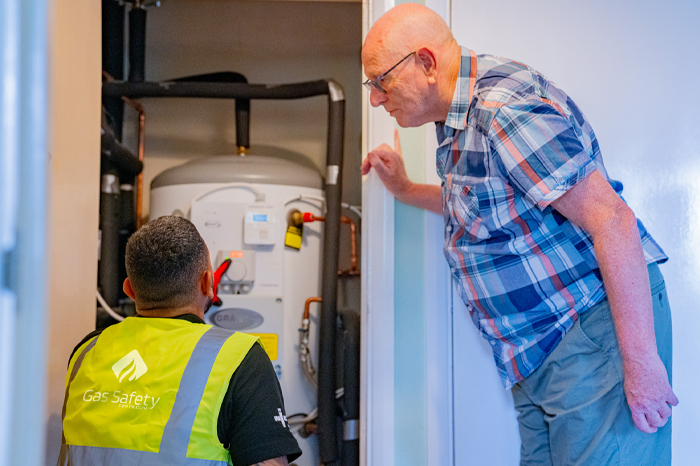
The safety of people working in any commercial or business property against the risks associated with fire is the prime responsibility of the owner or the landlord. The relevant law in the UK also binds them to ensure the safety of the people occupying their property.
Fire is the most severe threat in the workplace. So many fire incidents occur in different places every year, causing serious damage to properties and businesses. The financial impact of such fire incidents is often so damaging that many businesses could never recover and ultimately had to wind up.
That's why it was made compulsory for all workplaces in the UK to ensure the safety of the employees against potential risks of a possible fire incident. Therefore, the owners or property managers must conduct a risk assessment of their property against a fire and keep it updated regularly. The basic purpose of this assessment is to ensure the safety of the employees by highlighting the risk factors and identifying the people who might be at risk.
Fire Risk Assessment is a survey of the property, equipment installed, and the people working there to evaluate the likelihood of a fire eruption. Identifying the people at risk of being affected by a fire is also one of the main features of this survey. The fire risk assessment comprises the following steps:
Enforced in October 2006, the Regulatory Reform (Fire Safety) Order 2005 is the basic law regulating all non-domestic properties' fire safety. This law applies to all buildings, including the HMOs (houses in multiple occupations), blocks of flats, and any other building or structure other than private homes.
The law requires "the Responsible Person" to conduct fire risk assessments in the workplace. As the law clarifies, a responsible person is the owner, the landlord, or any other person nominated to care for his property.
He can be one of the employees or any other person the owner hires for this purpose. So, a responsible person might also be referred to as the property manager or the caretaker and responsible for conducting a fire risk assessment on the property.
The law further requires that the assessment should be done by a “competent person.” However, the law does not clarify the term “competent person.” The reason might be the considerable fluctuation in the size of the properties and the quantum of fire risk assessment required in that building. While conducting the fire risk assessment of a small workplace is a simple task, it would be entirely a different scheme when assessing a huge commercial organization or a factory.
However, a competent person should generally have the basic expertise and knowledge of fire risk assessment. He must also have a reasonable knowledge of how to conduct such an assessment. And above all, he must be aware of the main provisions of the fire safety law.
No specific timeframe is given in the law on the frequency of conducting a fire risk assessment. The law, however, requires to do it regularly. It should, therefore, be done on the following occasions:
Under normal circumstances, a fire risk assessment should be conducted at least once every 12 months but reviewed in case of any of the above eventualities. A completely new assessment should also be conducted after 5 years from the original assessment date, irrespective of the number of subsequent reviews.
There might be several reasons why a fire risk assessment fails, depending on the factual circumstances on the site. However, the most common reasons for failing a fire risk assessment might be:

The spontaneous response to this query might be that you will be held responsible for violating the law. But failing a fire risk assessment in your workplace might have more severe consequences. Let's see how:
Conducting a regular and timely fire risk assessment is crucial for you, your property, your business, and more importantly, your employees. It is also your legal responsibility. So, generally, it is presumed that being a responsible and law-abiding citizen, you must do it regularly. But in case you have not done it or forgotten to do it, the consequences might be more severe than you might think.
Apart from being a culprit of breaking the law, you may also face financial and business losses in an accident without a valid fire risk assessment. Above all, you may have to undergo immense moral and emotional pressure of being at fault, which results in severe consequences for your employees.
Fill the required information to order a gas safety certificate instantly.
Are you curious about your Gas Safety Certificate? With these simple steps, learn how to check its status and ensure your peace of mind.
Find out why your boiler is vibrating loudly. Explore causes, troubleshooting tips, and the importance of prompt repairs for a quiet and efficient heating system at home.
Gas engineers perform a gas safety check to ensure your gas appliances are safe. Read to learn what more you can expect from the gas safety check.
Learn about the importance of gas safety certificates for landlords and the legal consequences of not having a valid certificate.
Know your tenant rights: How long can a UK landlord leave you without hot water? Stay informed, assert your rights.
Are you a landlord who wants to know what happens if you don't have a gas safety certificate? Then, you need to give our post a read.
Fill out the following enquiry form and we will contact you as soon as possible.